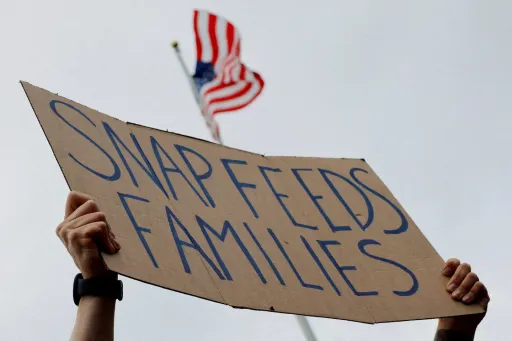By Pauline Odhiambo
Growing up in the unforgiving environment of Nairobi's Mathare slum, Sally Musonye would often fall back on the one emotion that never failed her — a belief that the future would be brighter.
Like many of the households in her neighbourhood, Sally's home was without electricity, which meant doing her homework under the dim light of a kerosene lamp.
"We did not have electricity in our home for 20 years," she tells TRT Afrika.
"Being short of kerosene meant that we had to decide whether to use what we had to do our homework or prepare the evening meals. Priority was given to the meals," she says of her experience of growing up with four siblings in those harsh conditions.
Sally's favourite thing to do in the daytime was gaze at the power lines crisscrossing Nairobi’s skyline and imagine her home awash with light.
"I would envision myself working for the national electricity company someday so that I could connect our home to the power grid and no longer spend nights in the dark," she recalls.
Sally was so determined to achieve this dream that she pursued a degree in electrical engineering after completing her high school education.
Her immediate goal was to have her father, a retired mechanic, and her mother, a former civil service clerk, live out their retirement years in comfort.
"My dream came true in 2015 when I got employed at Kenya Power and Lighting Company (KPLC) as an electrical engineer and finally managed to light up our home," she says, beaming at the thought.
Becoming a pensionable employee at KPLC also meant she could now pull the resources to help purchase the house she had grown up in Mathare North.
Vision and commitment
In 2015, Sally established AshGold Africa Initiative – a nonprofit with the vision to "transform lives from ashes to gold" through initiatives based on science, technology, engineering and mathematics (STEM) in marginalised communities.
"At the time, many of my peers were teenage mothers, in prison, or dead. Mathare North was a place where crime and drug abuse were rampant," says Sally.
"This, to some extent, is still the case in Mathare, which is why I decided to start Ash Gold to bring back hope to the community."
In 2017, Sally’s employer assigned her to Kitui County in the country’s eastern region, where her commitment to taking electricity to rural communities solidified.
"It was my first time out of the capital city to a rural part of Kenya. My team and I had been deployed to a high school 6km from the grid," Sally, who works as a power systems development engineer, recalls.
"The school had applied to be connected to the grid, but they only had three classrooms, one of which was being used as the staff room. So, I could tell they couldn't afford to pay for power."
Swathes of darkness
According to a 2019 report by the Global Association for the Off-Grid Solar Energy Industry, about 18 million of the 138 million people in rural East Africa who live without electricity are in Kenya.
For her part, Sally decided to approach the Institute of Electrical and Electronic Engineers (IEEE), a global network that could fund a solar project at the school she had identified as her priority.
She envisioned a scenario in which, in addition to providing electricity, she could also train the students in some of the practical aspects of engineering.
"I received a US $5,000 grant from IEEE's Humanitarian Technologists Board and installed solar panels at the school, which benefited 106 students. This was in 2022," she states.
"When we went back to the school in 2023, we discovered that enrolment of girls had grown 42% in a year."
Mentorship programme
Sally also rallied a group of university engineering students to support her cause, even as she expanded her solar power project to a second high school in Makueni County, also in the eastern part of Kenya.
"I established a network of engineering students in six public universities to mentor the high school students," she explains.
"Engineering students are more relatable than seasoned professionals who cannot communicate as efficiently to the younger students because of the age gap."
Her mentorship programme spans 13 schools and encompasses more than 7,000 students and educators.
"Even at the university level, we have many female STEM graduates. But regarding career progression, we hardly see them in high-level job roles," says Sally.
"We know that gender biases exist, but there is a need for more research and mentorship to help women break that glass ceiling."
She hopes training students in solar energy and other STEM projects will help their career progression.
Award-winning initiative
"When I am training students, we often bring in the parents as well. Through this, we have discovered that some of their parents are skilled in handicrafts," says Sally.
"This has inspired me to start a soap-making project through which parents can learn how to commercialise this skill so they can further support their children by paying for tuition and school supplies."
Cumulatively, Ash Gold has facilitated about 3.8 kilowatts of solar energy for two schools—an achievement that has seen Sally receive plaudits, including the Trailblazer Award, a presidential commendation she received from Kenya's former President Uhuru Kenyatta.
"I hope to continue inspiring more people to always look to finding the light. In whatever situation you are going through, find the light within yourself and ignite it in another person," she says.
➤ Click here to follow our WhatsApp channel for more stories.





























